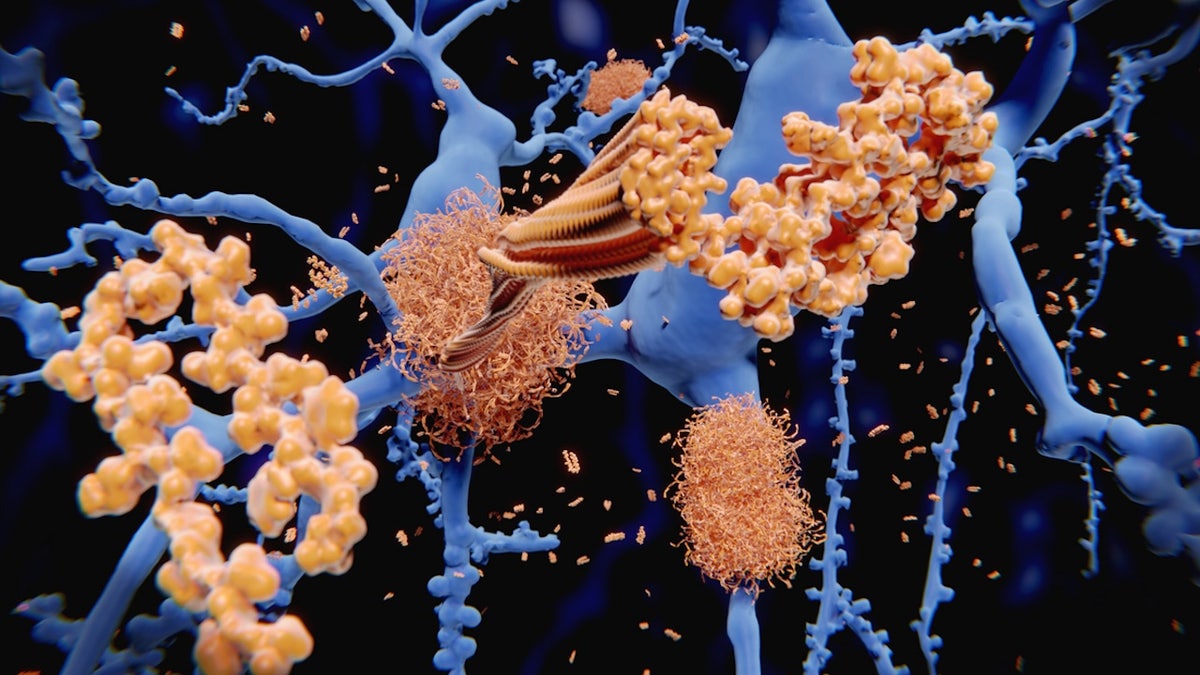Health
Look who’s experimenting with marijuana today more than any other age group

The fastest growing population to try marijuana these days is not rebellious teenagers.
Guess again.
New research from the National Survey on Drug Use and Health, an annual federal report that began over 50 years ago to provide up-to-date data on the use of tobacco, alcohol and illicit drugs as well as mental health in the United States, has a very different finding.
Instead, it’s people age 65 and older who are experimenting with marijuana more than any other age group.
GREATER NUMBERS OF WOMEN ARE DYING OF ALCOHOL-RELATED CONDITIONS, STUDY FINDS
The number has actually tripled since 2009, from 11% to 32% in 2019.
The numbers of older Americans trying pot increased further to 35% in 2021, the researchers noted, because the survey methodology changed during the pandemic.
Several factors are driving cannabis use among older Americans, a New York City-based psychiatrist told Fox News Digital. These include “a combination of physical ailments, the increased cultural acceptance of marijuana and the marketing efforts aimed at promoting marijuana as a therapeutic agent.” (AP Photo/Jim Mone, File)
In the slightly younger 60-64 demographic, more than half reported cannabis use.
“For seniors, experimenting with marijuana for the first time is driven” by several factors, Dr. Elie G. Aoun, addiction and forensic psychiatrist at Columbia University in New York City, told Fox News Digital.
These include “a combination of physical ailments, the increased cultural acceptance of marijuana and the marketing efforts aimed at promoting marijuana as a therapeutic agent,” added Aoun, who is also a member of the American Psychiatric Association board of trustees.
“Marijuana is the most commonly used federally illegal drug in the United States.”
He noted that older people are experimenting with the drug “despite the lack of evidence to support its wide use.”
More than a decade ago, only 1% of people 65 and older reported having used marijuana in the past month compared to five times that number in 2021.
WANT TO LOWER YOUR RISK OF DYING? GETTING A GOOD NIGHT’S SLEEP IS MORE URGENT THAN EVER
As Minnesota became the 23rd state to legalize cannabis in June, a majority of adults in virtually every other age group have experimented with it at least once, according to the survey.
Baby boomers retiring
“Marijuana — which can also be called cannabis — is the most commonly used federally illegal drug in the United States, with an estimated 48.2 million people using it in 2019,” according to the website of the Centers for Disease Control and Prevention.
It has several other names, including weed, pot or dope, inspired by parts of the cannabis plant — which has more than 100 compounds, including tetrahydrocannabinol (THC), which can be mind-altering.
It also contains other active compounds, such as cannabidiol (CBD), that do not cause a “high.”

As legalization and dispensaries have dampened the stigma attached to recreational marijuana in recent years, more Americans of an older age are trying the drug for more practical purposes such as sleep and pain control, a new report has found. (Cyberguy.com)
“Cannabis use in the population over 65 was rare until recently, as baby boomers reached these ages,” William C. Kerr, scientific director of the nonprofit Alcohol Research Group at the Public Health Institute in Emeryville, CA, told Fox News Digital.
Although many older Americans have tried the drug, most don’t do use it regularly.
HEADS UP ON MIGRAINES AS EXPERT REVEALS TIPS FOR FINDING RELIEF FROM DEBILITATING PAIN
Some 5% of those over 65 and 10% of those ages 60-64 reported marijuana use in the past month in 2021, compared to 24% of young adults.
Although many older Americans have tried the drug, most don’t do use it regularly.
Many Americans in the baby boom generation tried marijuana as they became young adults in the 1970s when drug experimentation was in vogue, with 36% of those 18-25 smoking marijuana in the past month in 1979, according to the report.
But the numbers plummeted in the 1980s after President Ronald Reagan passed the Anti-Drug Abuse Act that increased penalties for drug possession.
This prompted older Americans to avoid the drug for decades after, in part because of the stigma that became attached to it.
A need ‘to understand unique issues’
But as legalization and dispensaries have dampened the stigma attached to the recreational drug in recent years, more older Americans are trying the drug for more practical purposes such as sleep and pain control.
Yet there is limited scientific evidence, warns the CDC, that supports the idea that the drug effectively treats most types of acute or chronic pain — despite pain control being one of the most common reasons for using the drug.

There is a need for research to understand unique issues for this older group of Americans, such as interactions with health problems and medications. (iStock)
“So there is a need for research to understand unique issues for this group such as interactions with health problems and medications,” Kerr told Fox News Digital.
Older generations before baby boomers, such as the silent generation, who grew up before recreational weed was commonplace are still skeptical about its recreational use, per a recent report.
As of last year, only 30% of those over age 75 support legalizing its recreational use, compared to 53% of Americans in the 65-74 age group, which rivals the national average, according to a Pew Research survey.
Impaired driving, poisoning, unexpected intoxicating effects
“After alcohol, marijuana is the substance most often associated with impaired driving,” the CDC cautioned on its website.
And the way people use marijuana may also place individuals at greater risk.
Edibles, which are food or drinks infused with marijuana, have a greater risk of poisoning, compared to smoking marijuana, said the same source.

Edibles infused with marijuana have a greater risk of poisoning, compared to smoking marijuana, according to the CDC. (iStock)
They may take anywhere from half an hour to up to two hours to take effect, so people may unknowingly eat too much, which can lead to poisoning or serious injury, according to the CDC.
The exact amount of THC is often difficult to measure.
The intoxicating effects may also last longer than expected, depending on the interactions with other medications people are taking, the food they recently ingested and the specific amount they used.
CLICK HERE TO SIGN UP FOR OUR HEALTH NEWSLETTER
Additionally, the exact amount of THC is often also difficult to measure, so people may be surprised by their strength and how long they last in the body, the CDC added.
As metabolism slows down as people get older and with many older adults on multiple medications, this particular population needs to be extra cautious when using marijuana to avoid unpleasant and potentially harmful side effects.

Health
Is Okra Nature’s Ozempic? Learn the Truth About This Weight Loss Hack

Use left and right arrow keys to navigate between menu items.
Use escape to exit the menu.
Sign Up
Create a free account to access exclusive content, play games, solve puzzles, test your pop-culture knowledge and receive special offers.
Already have an account? Login
Health
Two cancer drugs show promise in reversing Alzheimer's devastating effects

NEWYou can now listen to Fox News articles!
Two cancer drugs could potentially slow or even reverse the effects of Alzheimer’s disease, a new study suggests.
Researchers at the University of California San Francisco (UCSF) explored how the common dementia changes gene expression (which genes are turned on or off) in certain brain cells, according to a press release from the university.
Next, they looked at which existing FDA-approved drugs might counteract, or reverse, those changes.
ALZHEIMER’S RISK COULD RISE WITH SPECIFIC SLEEP PATTERN, EXPERTS WARN
In analyzing millions of electronic medical records of adults over 65, the researchers identified two medications that appeared to reduce the likelihood of Alzheimer’s in the patients who took them.
The medications — letrozone and irinotecan — are both approved to treat cancer. Letrozole is a breast cancer medication and irinotecan treats colon and lung cancer.
When the scientists tested a combination of both medications in mice, they noted a reversal of the gene expression changes that were initiated by Alzheimer’s.
Two cancer drugs could potentially slow or even reverse the effects of Alzheimer’s disease, a new study suggests. (iStock)
They also discovered a reduction in tau protein clumps in the brain — a key marker of Alzheimer’s — and an improvement in learning and memory.
“Alzheimer’s disease comes with complex changes to the brain, which has made it tough to study and treat, but our computational tools opened up the possibility of tackling the complexity directly,” said co-senior author Marina Sirota, PhD, the interim director of the UCSF Bakar Computational Health Sciences Institute and professor of pediatrics, in the press release.
EATING THESE COMMON FOODS COULD REDUCE ALZHEIMER’S RISK, EXPERTS SAY
“We’re excited that our computational approach led us to a potential combination therapy for Alzheimer’s based on existing FDA-approved medications.”
The results of the study, which was funded in part by the National Institutes of Health (NIH) and the National Science Foundation, were published in the journal Cell on July 21.

In analyzing millions of electronic medical records of adults over 65, the researchers identified two medications that appeared to reduce the likelihood of Alzheimer’s in the patients who took them. (iStock)
While the study’s outcome was promising, the researchers acknowledged several limitations, including the fact that the database they used to identify possible drugs was built from cancer cells, not brain cells.
They also noted that animal models were used.
“Although necessary, validation in animal models may not fully recapitulate human biology,” the researchers wrote.
MEN FACE DOUBLE DEMENTIA RISK IF THEY HAVE A HIDDEN GENETIC MUTATION
There was also a noticeable gender difference in response to the medications, with male mice responding better than females.
“As a hormone modulator, letrozole might contribute to this sex difference,” the team noted. “However, the analysis remains inconclusive due to the small number of male letrozole users.”
The electronic medical records could also present limitations, “as data tend to be sparse and are not collected with specific research in mind.”
“We’re hopeful this can be swiftly translated into a real solution for millions of patients with Alzheimer’s.”
More than seven million people in the U.S. are currently living with Alzheimer’s, according to the Alzheimer’s Association.
This number is expected to approach 13 million by the year 2050.

More than seven million people in the U.S. are currently living with Alzheimer’s, according to the Alzheimer’s Association. (iStock)
There are currently only two disease-modifying medications that have been FDA-approved to treat Alzheimer’s, UCSF states.
Lecanemab (Leqembi) and donanemab (Kisunla) are both monoclonal antibodies that are administered via IV infusions.
They work by reducing the build-up of amyloid plaques in the brain, but they are only effective for those with early-stage Alzheimer’s and have the potential for some serious side effects, according to experts.
(Other Alzheimer’s medications help with symptoms, but don’t treat the underlying disease.)
CLICK HERE TO SIGN UP FOR OUR HEALTH NEWSLETTER
“Alzheimer’s is likely the result of numerous alterations in many genes and proteins that, together, disrupt brain health,” said co-senior study author Yadong Huang, M.D., PhD, professor of neurology and pathology at UCSF, in the release.
“This makes it very challenging for drug development — which traditionally produces one drug for a single gene or protein that drives disease.”

Existing Alzheimer’s drugs work by reducing the build-up of amyloid plaques in the brain, but they are only effective for those with early-stage disease. (iStock)
Looking ahead, the researchers plan to start a clinical trial to explore the combined drugs’ impact on human patients with Alzheimer’s.
“If completely independent data sources, such as single-cell expression data and clinical records, guide us to the same pathways and the same drugs, and then resolve Alzheimer’s in a genetic model, then maybe we’re onto something,” Sirota said in the release.
For more Health articles, visit www.foxnews.com/health
“We’re hopeful this can be swiftly translated into a real solution for millions of patients with Alzheimer’s.”
Health
Video: How the Organ Donation System Let These Patients Down

Under pressure from the federal government to increase organ transplants, hospitals and organ procurement organizations across the country are rushing people toward donation, and some patients have been harmed. Brian M. Rosenthal explains how and where this is happening.
-

 Health1 week ago
Health1 week agoNew weekly injection for Parkinson's could replace daily pill for millions, study suggests
-

 Culture1 week ago
Culture1 week agoTest Your Knowledge of French Novels Made Into Musicals and Movies
-

 Politics1 week ago
Politics1 week agoConstitutional scholar uses Biden autopen to flip Dems’ ‘democracy’ script against them: ‘Scandal’
-

 Sports1 week ago
Sports1 week agoEx-MLB pitcher Dan Serafini found guilty of murdering father-in-law
-

 Business1 week ago
Business1 week agoShould You Get a Heat Pump? Take Our 2-Question Quiz.
-

 Politics1 week ago
Politics1 week agoDOJ rejects Ghislaine Maxwell’s appeal in SCOTUS response
-

 News1 week ago
News1 week agoSCOTUS allows dismantling of Education Dept. And, Trump threatens Russia with tariffs
-

 Health1 week ago
Health1 week agoJohn Goodman, 72, Says His 200-Lb. Weight Loss Helps Him ‘Live Life Better’















